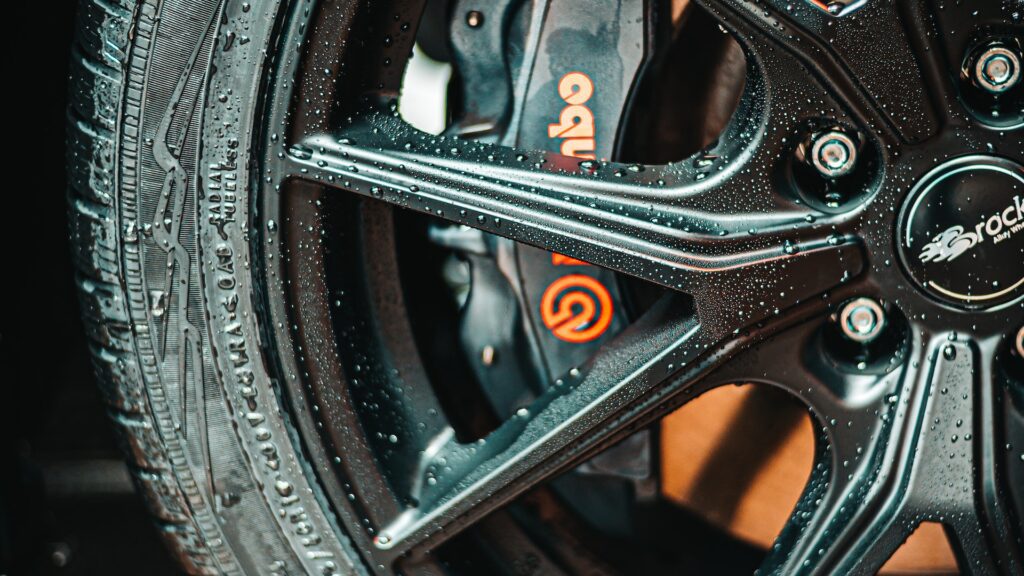Summer Tyre vs Winter Tyre vs All-Season Tyre
When it comes to selecting the right tyres for your vehicle, understanding the contrasts between summer tyres, winter tyres, and all-season tyres is crucial. In this blog, we will explore the features, pros and cons of each tyre, providing you with a clear understanding of their suitability for various weather conditions. So, let’s dive in and uncover the mysteries behind summer tyres, winter tyres, and all-season tyres.
Summer Tyres:
Summer tyres are designed to excel in dry and wet conditions typically experienced during the summer months. They are constructed with a specific tread pattern that provides excellent grip on dry roads, allowing for better handling and manoeuvrability. The tread pattern also helps disperse water efficiently, reducing the risk of hydroplaning on wet surfaces. Additionally, summer tyres offer shorter braking distances, promoting enhanced safety.
Pros of Summer Tyres:
- Superior performance on dry roads with excellent grip and handling.
- Efficient water dispersion on wet roads to reduce the risk of hydroplaning.
- Shorter braking distances for enhanced safety.
Cons of Summer Tyres:
- Less effective in winter conditions, especially on snow and ice.
- Limited performance and handling in off-road terrains.
- May wear out faster in extreme heat.
Winter Tyres:
Winter tyres, also known as snow tyres, are specially designed to perform optimally in cold weather, icy roads, and snowy conditions. They feature a unique rubber compound that remains flexible even at low temperatures, ensuring better traction on icy surfaces. The tread pattern of winter tyres includes deeper grooves and sipes, which enhance grip and help disperse snow and slush, reducing the risk of skidding.
Pros of Winter Tyres:
- Excellent performance on icy and snowy roads.
- Enhanced traction and grip in cold weather conditions.
- Improved braking capabilities on slippery surfaces.
Cons of Winter Tyres:
- Reduced performance and grip on dry roads compared to summer tyres.
- Higher rolling resistance, resulting in increased fuel consumption.
- Unsuitable for use in warmer weather, as the softer rubber compound may wear out faster.
All-Season Tyres:
As the name suggests, all-season tyres are designed to offer adequate performance in a variety of weather conditions throughout the year. They are a compromise between summer and winter tyres, aiming to provide decent performance in both dry and wet conditions, as well as light snowfall. All-season tyres feature a versatile tread pattern that strikes a balance between grip and handling.
Pros of All-Season Tyres:
- Convenient as they eliminate the need for seasonal tyre changes.
- Decent performance in a wide range of weather conditions.
- As all-season tyres, they work well all year-round.
Cons of All-Season Tyres:
- Less optimal performance compared to dedicated summer or winter tyres.
- Reduced grip and traction in extreme winter conditions.
- May wear out faster in high summer temperatures or severe winter conditions.
The Difference Between Summer Tyres, Winter Tyres, and All-Season Tyres:
The main difference between these tyre types lies in their specific design and construction to cater to different weather conditions. Summer tyres perform in dry and wet conditions, with a tread pattern optimised for water dispersion and grip. Winter tyres work better in cold weather, providing superior traction on snow and ice, thanks to their unique rubber compound and tread pattern. All-season tyres aim to strike a balance, offering satisfactory performance in various weather conditions throughout the year.
Which Tyre Should You Choose?
The choice of tyre depends on several factors, including your local climate, driving habits, and the predominant weather conditions you encounter. If you live in an area with distinct seasons and experience harsh winters with heavy snowfall, dedicated winter tyres perform better and optimise safety and performance. On the other hand, if you live in a region with mild winters and occasional snow, all-season tyres can be a convenient and cost-effective choice. Summer tyres are ideal for areas with predominantly dry and wet conditions throughout the year.
Keep in mind that in New Zealand, the use of winter tyres is not as common as in colder regions like Europe, Japan, or North America. The country’s temperate climate and limited snow and ice conditions in most parts of the country for only a few months each year contribute to this. Instead, all-season tyres are popular in New Zealand due to their versatility in handling a wide range of weather conditions throughout the year.

Don’t Stop Here
More To Explore
AT vs HT Tyres: Which Ones Truly Suit Kiwi Roads?
If you drive around New Zealand long enough, you’ll hit every sort of road you…
How to Repair a Punctured Off-Road Tyre in Remote Locations
When you’re off the beaten track in the backblocks of New Zealand, a flat tyre…
Why Your Car Acts Funny in Winter (And What You Can Do About It)
Ever tried to start your car on a frosty winter morning and wondered why it…



